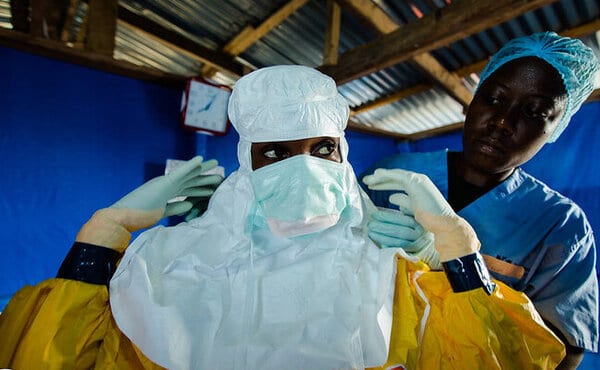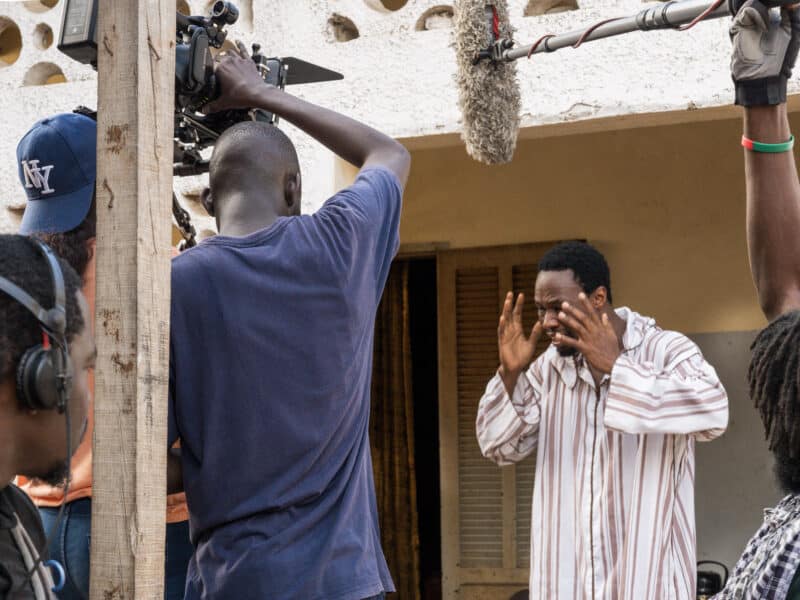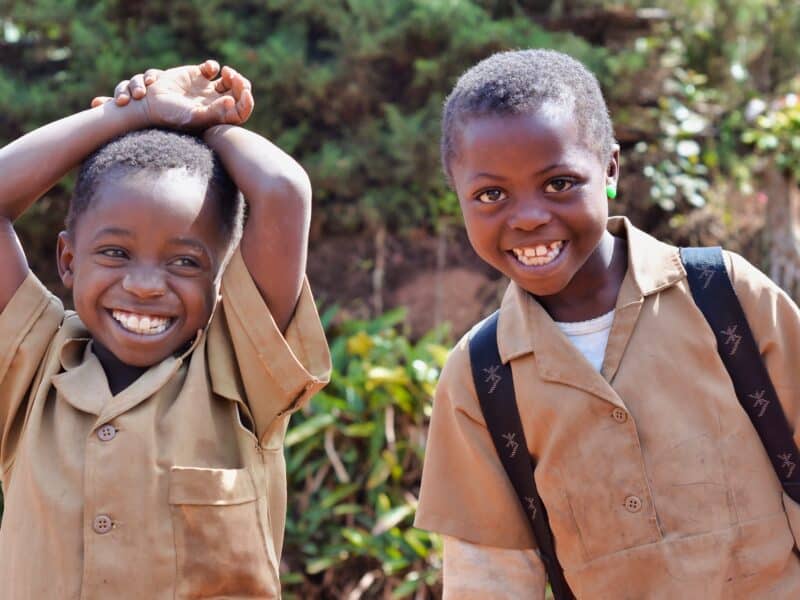Within days of a cluster of Ebola cases being identified in the N’Zérékoré region of Guinea in February, the Johns Hopkins Center for Communication Programs and its partners on the ground were already on social media and the airwaves with key messages about precautions, signs and symptoms, and the importance of getting vaccinated against Ebola.
With $800,000 quickly dispatched from USAID, CCP’s Breakthrough ACTION project and its partners have also developed a television program with experts on Ebola, an interactive radio shows where people can ask questions in six local languages and are developing new campaigns based on the situation in the region located near Guinea’s borders with Cote d’Ivoire, Sierra Leone and Liberia.
The quick response is possible for two main reasons: CCP’s experience with the Ebola outbreak in West Africa in 2014, which caused 11,310 deaths in Guinea, Liberia and Sierra Leone, and its on-the-ground presence fighting zoonotic diseases. That expertise, coupled with the knowledge gained during the current COVID-19 pandemic by Breakthrough ACTION project, enabled CCP to hit the ground running in Guinea.
“We already knew what to do,” says CCP’s Antonia Morzenti, who is helping with the Ebola response in Guinea. “And it is so important that we respond with urgency. The borders are very porous and if we don’t act quickly, all it takes is one person to travel to another country to have it spread elsewhere.”
The Ebola virus causes a deadly disease and occasional outbreaks primarily occur on the African continent. The virus spreads to people initially through direct contact with the blood, bodily fluids and tissues of infected animals. Ebola then spreads to other people through direct contact with bodily fluids of a person who is sick with or has died from the disease. People can protect themselves by staying away from those who are infected.
Patient Zero in the current Guinea outbreak, which has sickened 18 people and killed 9, was first misdiagnosed with typhoid and then malaria. As a result, she transmitted the virus to those who participated in her burial, when they practiced the traditional ritual of communally washing the body.
Following the last Ebola outbreak, CCP supported a variety of activities to help rebuild trust in the health system in Guinea.
When the COVID-19 pandemic struck about a year ago, CCP quickly responded, supporting the Ministry of Health with the development and implementation of a number of approaches to promote the COVID-19 prevention behaviors.
While COVID-19 is more easily transmitted – primarily by particles in the air – Ebola is far deadlier. With this new Ebola outbreak, it is imperative that the government act quickly and instill confidence in the citizens that by adopting prevention behaviors, Guinea can keep Ebola contained.
Upon the discovery of the current outbreak, the World Health Organization sent Ebola vaccines – developed in the wake of the 2014 outbreak – and the Guinean government rolled out a rapid Ebola vaccination campaign, vaccinating more than 1,000 people in the first week alone, reaching a ring of at-risk people in proximity to the initial cases.
CCP has relied on the tools and materials developed during the last outbreak and aggregated on its Ebola Communication Network website, as well as some tools from Breakthrough ACTION DRC and the National Agency of Health Security in Guinea, which is the lead agency responding to the public health crisis.
The next phase of Breakthrough ACTION’s work in Guinea will focus more on Ebola prevention and also on the safety and effectiveness of the Ebola vaccine in the hopes that more people will roll up their sleeves to get one. Breakthrough ACTION is working to find influencers who can build Ebola vaccine confidence. The government, meanwhile, is going door-to-door in some locations to educate people about Ebola signs and symptoms, promote prevention behaviors and encourage everyone to sign up for an Ebola vaccine.
The Breakthrough ACTION team is also developing new messages that are specific to Guinea’s current outbreak and will work to counter any rumors and misinformation that pop up in the country.
“We’re hoping that our messages can calm people’s fears and keep people safe,” Morzenti says.





